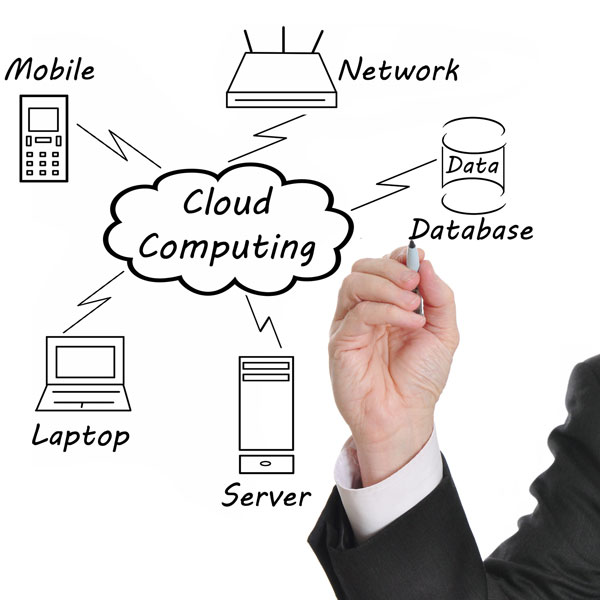What You Need to Know About Cloud Computing

 It seems everyone has their head in the cloud these days.
It seems everyone has their head in the cloud these days.
But what is the cloud? Many businesses still admit to being baffled by tech terms. Despite that, the take-up of cloud computing is still growing. In fact, 93% of organizations today are using cloud services. In light of that growing trend, companies are moving to a hybrid cloud. In 2016, 57% of organizations are on a hybrid cloud, versus 51% in 2015. With such growth, it’s important to know what the future looks like in this growing aspect of technology.
That’s why we’ve put together this basic introduction to cloud computing.
Cloud Computing 101
Cloud computing is how we refer to remote, Internet-based storage. The example most people are familiar with is an online email service, such as Gmail.
When you log into Gmail, you’re not looking at emails stored on your computer. They’re stored online – in the cloud. The cloud isn’t a physical place. It’s just a way of describing a server you remotely access. It’s for this reason you can retrieve your emails no matter where you are. This type of remote access can be used for a variety of information and companies are now offering these services to companies and individuals, such as Dropbox, Microsoft Office, and Google Drive.
What Are the Benefits?
Here’s an overview of the benefits of cloud computing:
Low Cost
Cloud computing offers a great way for businesses to ‘size up’ without investing in expensive tech themselves – or the space needed to hold it. By tapping into the cloud, businesses can reach levels of storage, and remote working once considered the domain of much larger companies.
Outsourcing storage and recovery gives companies an edge over their competitors and even lets them compete with larger rivals.
Recovery
Businesses often struggle to protect their data. They usually lack the tech, the expertise, or both.
Cloud computing keeps your data in a state of synchronization, so in the vast majority of cases, you are protected from data loss. Your cloud host will also have their internal recovery and backup procedure, designed by their in-house experts.
Working Remotely
Working remotely is a massive benefit of cloud computing. Your employees might already access their emails from anywhere, but imagine what they could do with access to documents, data, and software.
Many companies have already transformed their daily operations by switching to the cloud, offering them newfound flexibility.
Is It Safe?
We’ve all heard horror stories about hacked servers and stolen data. “The Cloud” also sounds a bit like Stephen King to the uninitiated. So how safe is it?
The reality is that the cloud is often safer than your local storage – on multiple levels.
Reputable cloud service companies know about data security. Their reputation depends on it so they’ll employ the latest tech to protect the data of their customers. By contrast, many businesses barely have a local firewall for in-house security.
Cloud computing also means your data is more secure in the event of an accident that would cause data loss, such as a disk failure. If your local servers fail, that information could be gone forever. Cloud data is constantly synchronized, therefore, even severe technical issues might only require a small rollback.
Types of Cloud Services
There are four types of cloud computing services to consider:
Public
This is available to the general public and services can be purchased on an as-needed basis from a cloud provider.
Private
For enhanced security and privacy, many organizations opt for private clouds that are dedicated only to their company. They can be handled internally or through a third-party service provider.
Community
Companies with similar needs may share community clouds, finding it an efficient way of combining resources.
Hybrid
This is the combination of two or more types of clouds for those needing a combination of services (either public or private).
Investing in Cloud Computing
If you’re thinking about investing in cloud computing, you’re moving in the right direction. It’s a big step forward for your business and care must be taken to securely migrate to the cloud, protecting your data and applications.
Sagacent Technologies offers a range of cost-effective cloud hosting services customized to your business’ needs, regardless of size. We ensure your cloud computing services you choose are installed, monitored and maintained properly by experts in the field.
Want to know more? Contact us to discuss cloud hosting options.
Sagacent Technologies offers technology management and support, including proactive/preventative maintenance, onsite and offsite data back-ups, network and security audits, mobility solutions, disaster planning and emergency business resumption services. The company serves clients of 10 to 150 employees within the Silicon Valley region.
